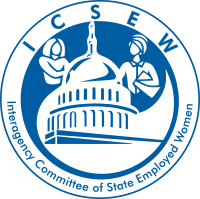September 2020 Meeting Recap
By Rachel Friederich, ICSEW Communications Chair
Editor’s note: Regular membership meetings are streamed via Zoom and Facebook live. You can view the recordings of the meetings and see the presentations on the ICSEW Facebook page. Click on the videos tab.
Cybersecurity and helping formerly incarcerated individuals overcome barriers to employment were topics presented at the September 2020 regular membership meeting.
What’s Next Washington
Susan Mason and Roz Solomon shared the story of how they co-founded What’s Next Washington, an organization that works to improve the ability of people with conviction histories to reenter society and achieve long-term economic stability.
Mason shared her story of how she struggled to obtain employment following a years of domestic violence, drug and alcohol abuse and spending 15 months in a federal prison. Prior to prison, she worked as a loan processor in the mortgage industry. She had the education and licensing and years of work experience. But after her sentence ended and years after paying her legal financial obligations, employers didn’t see anyone else but a criminal.
“I was not sentenced to permanent unemployment, but this industry didn’t want me,” Mason said.
This experience is what led her to cofound What’s Next Washington. What’s Next Washington is an organization that works to help overcome barriers to employment for justice-involved individuals.
Mason shared one of the Projects What’s Next Washington is working on is the Partnering for an Inclusive Workforce Project (PIWP) while using the Formerly Incarcerated Talent (FIT). guide. What’s Next Washington held focus groups of hiring managers, CEOS and human resources staff from various industries. The most common concern employers said they had when screening formerly incarcerated individuals was that they did not have a proper way to vet potential candidates. What’s Next Washington worked to develop a tool for employers, FIT. Information on FIT, and other resources on identifying biases, and workshops and trainings and sourcing talent can be found on the What’s next Washington website.
Cybersecurity
The COVID-19 pandemic has shifted most of our activities online. From teleworking, to banking, attending school to most of our commerce, most of our interactions have shifted to the digital world.
Kim Triplett-Kolerich, senior investigator for the office of the Attorney General’s Financial Crimes Unit, gave some tips on how to keep your personal information safe as we rely more and more on contactless ways to do business.
Triplett said a good defense against identity theft is to freeze your credit with each of the three major credit bureaus: Experian, Equifax and Trans Union (note: You must place an individual freeze with each bureau) Placing a freeze on your credit can prevent certain third parties from accessing your information, which can be a useful tool against identity theft. When your credit is frozen, lenders who don’t already have a relationship with you will generally won’t be able to pull your credit report or open accounts in your name.
Triplett also said to be aware of using debit card machines at brick-and-mortar stores. She said to be suspicious if the store says the card chip reader is broken. She said that could be a telltale sign that there may be a card skimmer installed.
Triplett-Kolerich said she is available for speaking engagements for small community groups and non-profit organizations.
Kim Triplett:-Kolerich- https://www.integrityblue.com/ email: kim@integrityblue.com

